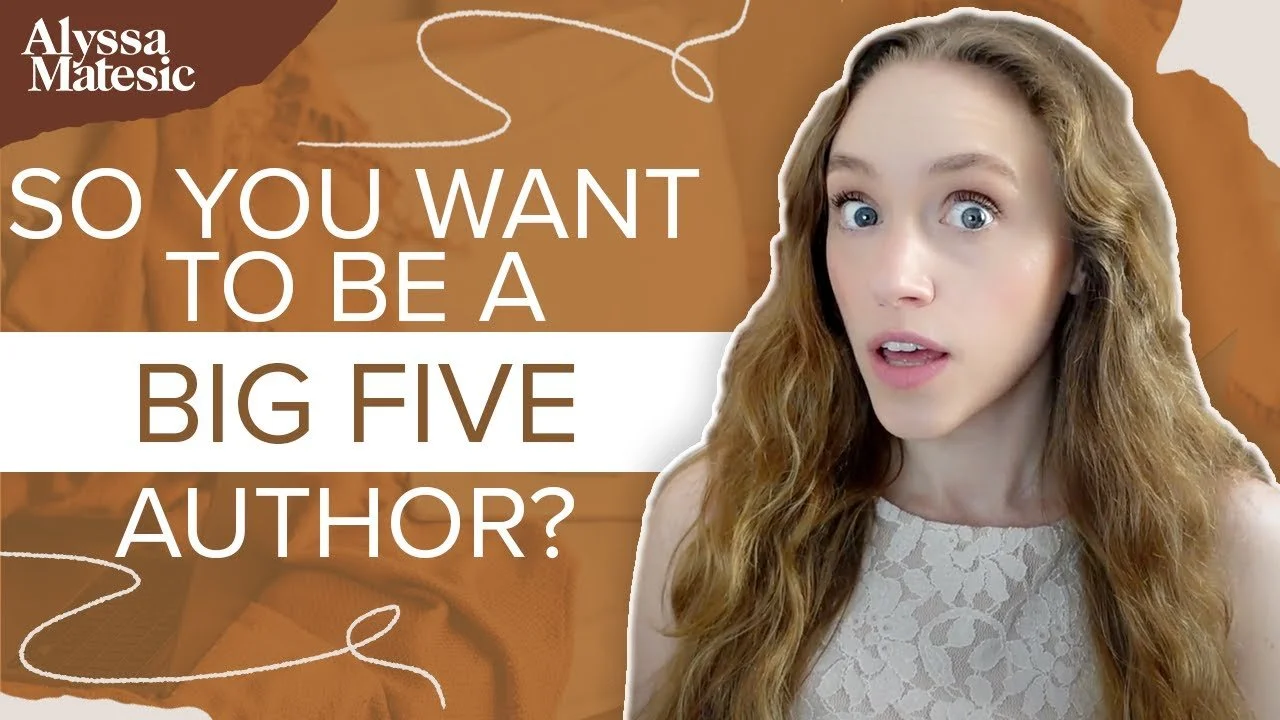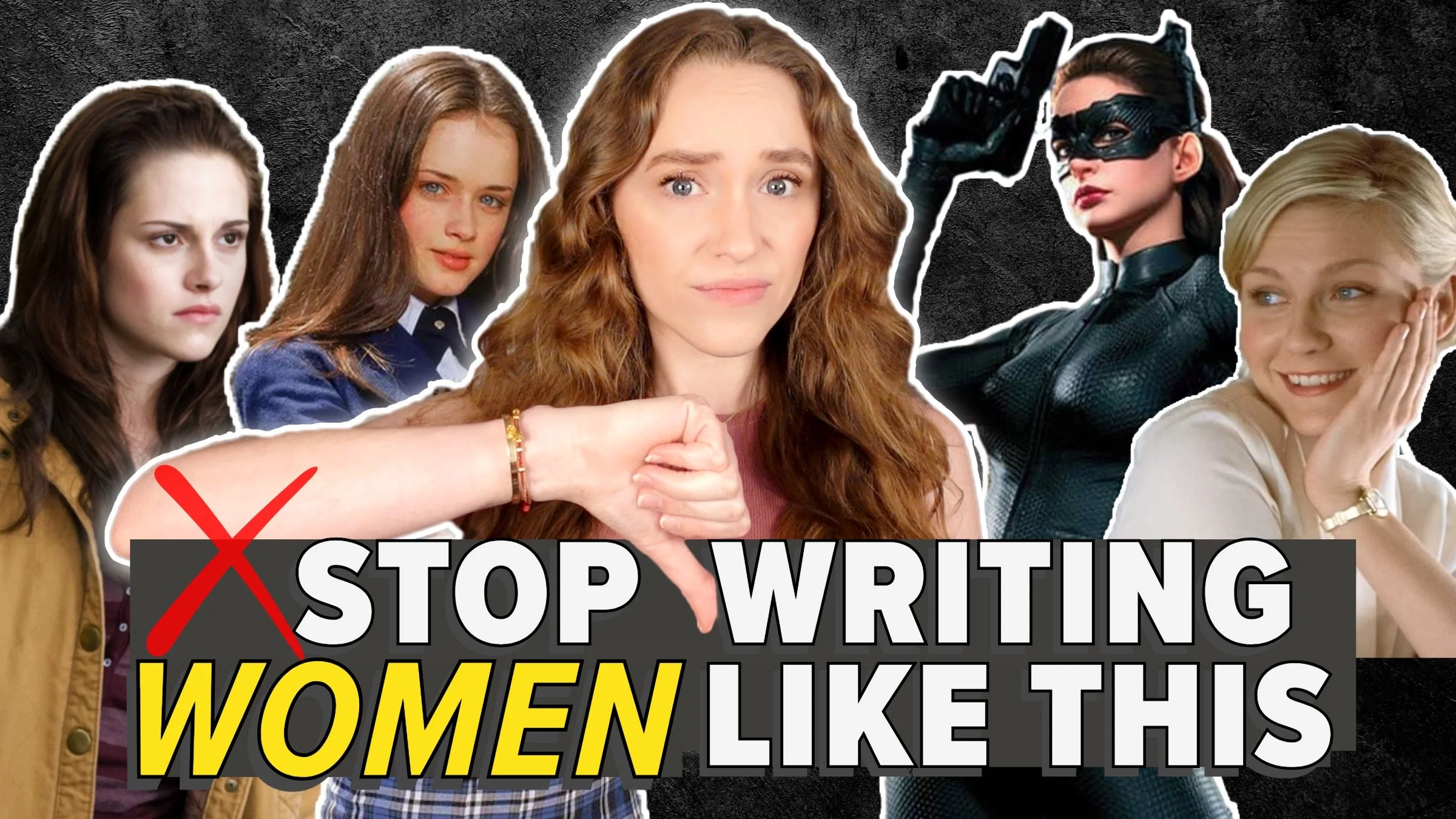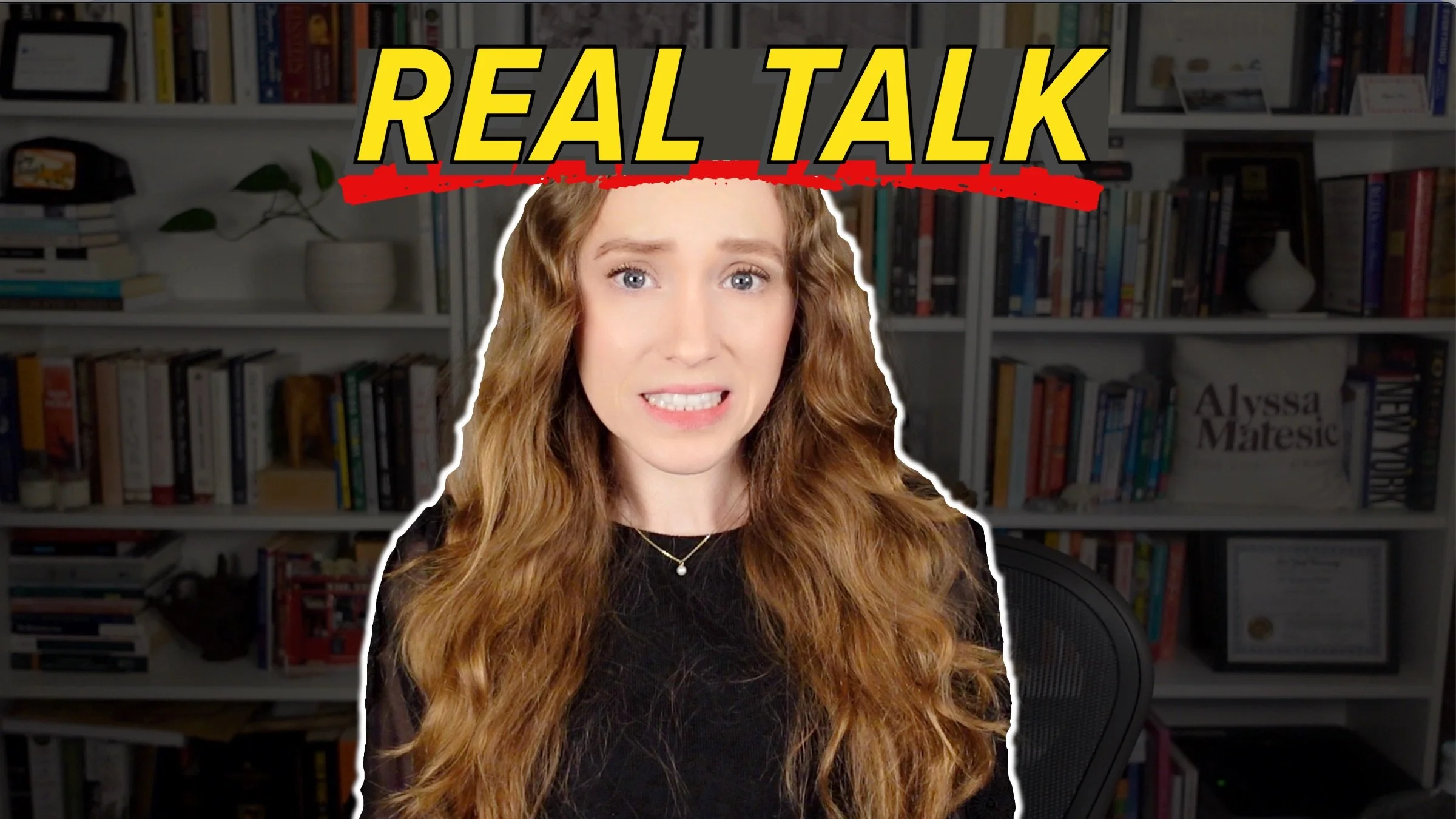What’s It Like Being Traditionally Published? What to Expect When You Sign with a Big Five Publisher
HIT PLAY OR READ THE POST BELOW:
If your dream is to publish your book with a Big Five publishing house, it's important for you to know what actually happens after you get that coveted book deal. What’s it like being traditionally published? Will your author career become everything that you dreamed it would be, or will there be some unexpected hurdles and obstacles you have to face along the way?
As a former literary agent assistant and an editorial employee at Penguin Random House, I bring my insights from the frontlines of the traditional publishing industry to help educate aspiring authors on what they can expect. It's an industry that can often feel opaque and mysterious, so I want to open up the curtains and give you some more insight into how it works.
Today I'm going to talk about what it's actually like for you as an author once you get a book deal with a major publishing house — the good, the bad and the hard truths. I am all about empowering authors to make the most of their publishing journey, no matter what it looks like.
With that in mind, here are five facts about what it’s like being traditionally published.
1. You Will Still Have to Revise Your Book
Before you got a literary agent, you likely went through extensive edits, either on your own or with a beta reader, critique partner or even a professional editor. Then, once you signed with your agent, you likely did a bit more developmental work to make sure that the manuscript was as strong as possible before presenting it to publishers.
If you hate the revision process, I'm sorry to say that even once you sign the book deal, you're still going to go through more edits. These are going to be led by the editor at the publishing house who acquired your book.
I hope it helps quell your concerns to know that even the most high-profile, best-selling authors still go through major edits with their editors. Personally, I worked with several New York Times best-selling authors who were decades into their career, and they were still working with their editors going through comments and markups, just like any other author would.
These edits are often of the developmental variety, not just copy edits and proofreading — but remember that it's all in the interest of creating the strongest version of your story possible. Your editorial team and your agent want to ensure that your story, which they love, resonates with as many readers as possible. So, know that the edits are coming ultimately from a place of love and support.
The earlier that you embrace revisions as a necessary but admittedly hard part of your process, the better you will be positioned to be a successful author. I truly believe revisions are where the magic happens!
2. Your Marketing Budget Is Out of Your Control
As a traditionally published author, you will not likely know the exact marketing budget for your book. I know that authors who are new to the industry are very concerned about the marketing for their book, and that is completely valid.
The way that it works at a Big Five house is that publishers divide the books that they have acquired into lists based on the season in which they're going to be released. So, for instance, they are going to look at all of the titles for fall 2023 and then allocate their marketing budget for the fall 2023 list based on how they think certain books are going to perform.
In reality, what often happens is books that are by well-known or best-selling authors are going to get a larger proportion of the marketing dollars, because the publisher knows that the marketing dollars they put in before are working. Sometimes that means that debut authors or books that publishers might consider “mid-list” will not get as much marketing budget. That doesn't mean there is not a robust marketing plan — there always is a detailed marketing plan for every single book put out by a publishing house — but I want to be upfront with you in sharing that you might not have the big splashy Barnes and Noble campaign that a best-selling author who's also published at your time is having. A lot of this is ultimately out of your control.
Now, I hope that when you get to that point, your team at the publishing house decides that your book is the one they want to put all that marketing spend behind because they think it's going to do really well, but the reality is that might not be the case. So, I want you to be prepared for it. As a debut author, you can and should absolutely expect marketing and publicity plans from your team, but it may not be everything that you envision or everything that you see other authors getting.
3. You Will Enjoy Exciting Opportunities
Now let's talk about the positive side of what it’s like being traditionally published, which is that it's going to unlock a lot of exciting opportunities for you and your career. One of the biggest pros of opting for traditional publishing rather than indie or self-publishing is that it gives you a lot more media coverage opportunities that typically aren't granted to books that are indie published.
For example, your book could be submitted and chosen for one of the coveted book clubs, like Reese Witherspoon's Hello Sunshine book club or the Read with Jenna book club, which puts a stamp on your book and typically drives a lot of sales. These book clubs are known for skyrocketing debut authors to best-seller status almost instantly. This isn't an opportunity you will likely be able to consider if you self or indie publish.
When you are publishing with a traditional publishing house, you are also going to get robust review coverage, maybe even in very prestigious outlets like the New York Times book review or Kirkus Reviews. Your agent and publisher will also consider submitting your book to contests that will increase its visibility, and traditionally published books are typically made into other editions, including audiobooks and international editions, where your story is translated into another language and then sold into that market. So, going the traditional route allows you to reach a larger audience in some cases. And remember, you will get paid for each of the new editions of your book that come out.
4. Your Payments Will Trickle In
The truth is that your payments from the publishing house are going to trickle in over a long period of time. This sometimes surprises authors who wonder what it’s like being traditionally published with a Big Five publisher.
When you make a deal with a traditional publishing house, you will be paid an advance, which is an advance payment against future royalties that you retain no matter how many copies your book sells. While this sum may be substantial — some authors see six figures, and high-profile authors can see even more than that — the sum is not going to be paid to you upfront, which is why most authors cannot live off of their advances alone or quit their day jobs. Also remember that your agent gets 15 percent of your advance, so you will have to deduct your agent's percentage.
Your advance is typically going to be paid out to you in four different installments:
On signing the contract
On the publisher’s acceptance of your manuscript (which typically comes after those revisions that we talked about with the editor who purchased your book, once the editor feels it is in a great place and you're ready to push it through production)
On publication of the book, which might be a year or more after the previous payment
One year after the book is published or when the next edition — typically the paperback edition — comes out, which is usually around a year later as well
As the book begins to sell, at first, your royalties are essentially going to be crediting the advance that the publisher already paid you, so you're only going to get royalty checks once you sell enough books to make back the investment that the publisher has already paid you. You will never have to pay back the advance, but you're only going to see royalties if the book earns out the advance. At that point, if you do earn royalties, you would get those checks on a monthly or quarterly basis.
This long payment timeline is why most authors still have a day job. It takes a very long time for you to get to the point where you are able to fully support yourself just on your book income.
5. Others Will Look Up to You
My final insight into what it's like to be a traditionally published author is that others are going to start to look up to you. Once you become a traditionally published author with a Big Five house, you will be given an unspoken stamp of approval among the writing community because this is an extremely difficult thing to achieve. Other authors who are published or unpublished are going to recognize that achievement and see you as somewhat of an authority.
For example, many creative writing programs require that their professors publish traditionally before they are able to have a position at the university. It's possible that you could be recruited to speak at conferences or events or workshops, for instance. Having a book published by a Big Five publisher is almost like joining an inner circle. You're going to get access to people and communities that you may not have otherwise ever been in contact with. This is obviously only going to increase as your career develops and if your books sell very well.
But there's another side of this notoriety that maybe isn't so exciting: It also means that other friends, other authors, maybe even complete strangers are going to ask you for favors. That could be a request to blurb another author's book — traditionally published authors are often inundated with requests to blurb other books that are coming out. Publishers will want to put a nice little review by you on the back cover of this other book that's coming out in the hopes of generating more sales. This is something that you typically are expected to do for free, and traditionally published authors often have a whole pile of books that people want blurbed. You are going to have to decide how many you're actually going to do or you will quickly become overwhelmed.
You might be asked to participate or moderate another person's reading or book signing. Other authors will likely ask you for feedback on their manuscript, or even introductions to your literary agent or publisher, if they are unpublished. All of these requests can become overwhelming, especially to newer authors or authors who are introverted. So, I want you to set realistic boundaries and know your limits. Don't feel the need to respond to each and every one of these requests because that is quickly going to become unsustainable.
I hope this helped you better understand what it's really like to be a traditionally published author and gave you a peek behind the curtain of the industry so you have realistic expectations for what your journey will be like.
Thanks so much for reading and happy writing!






